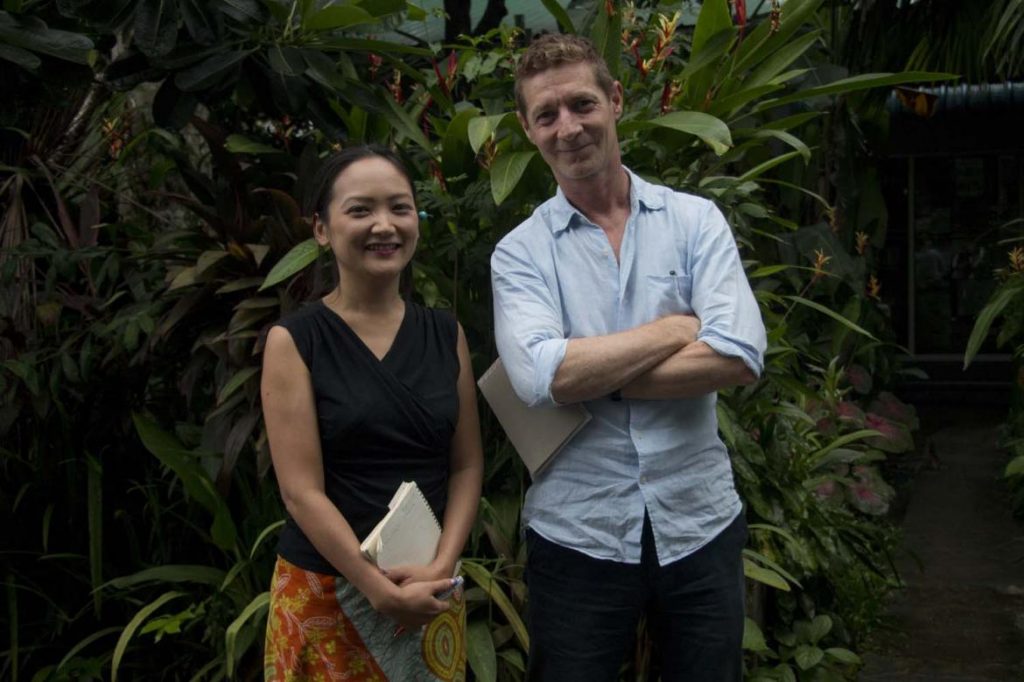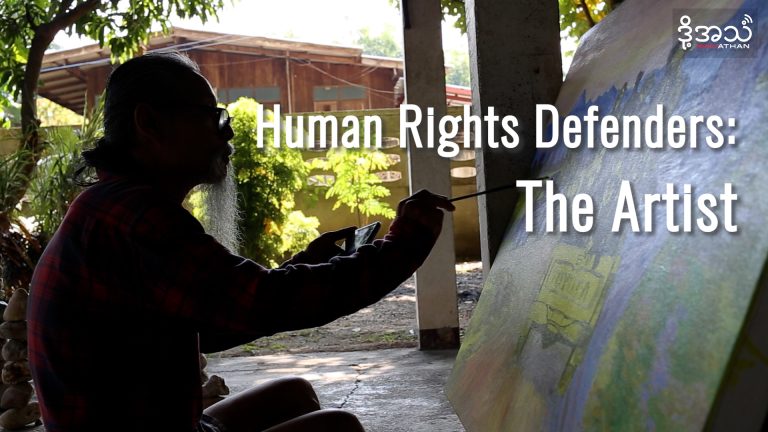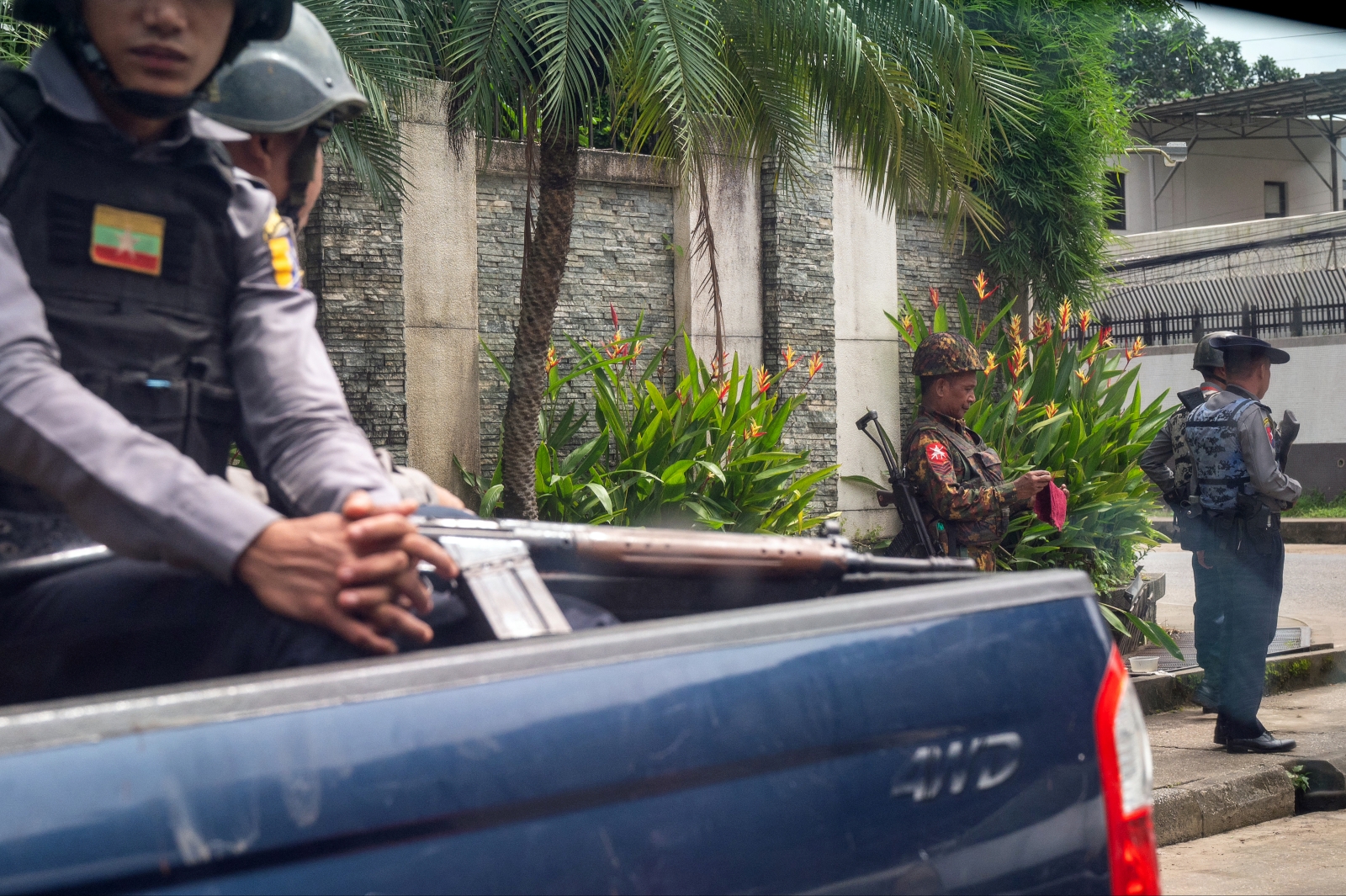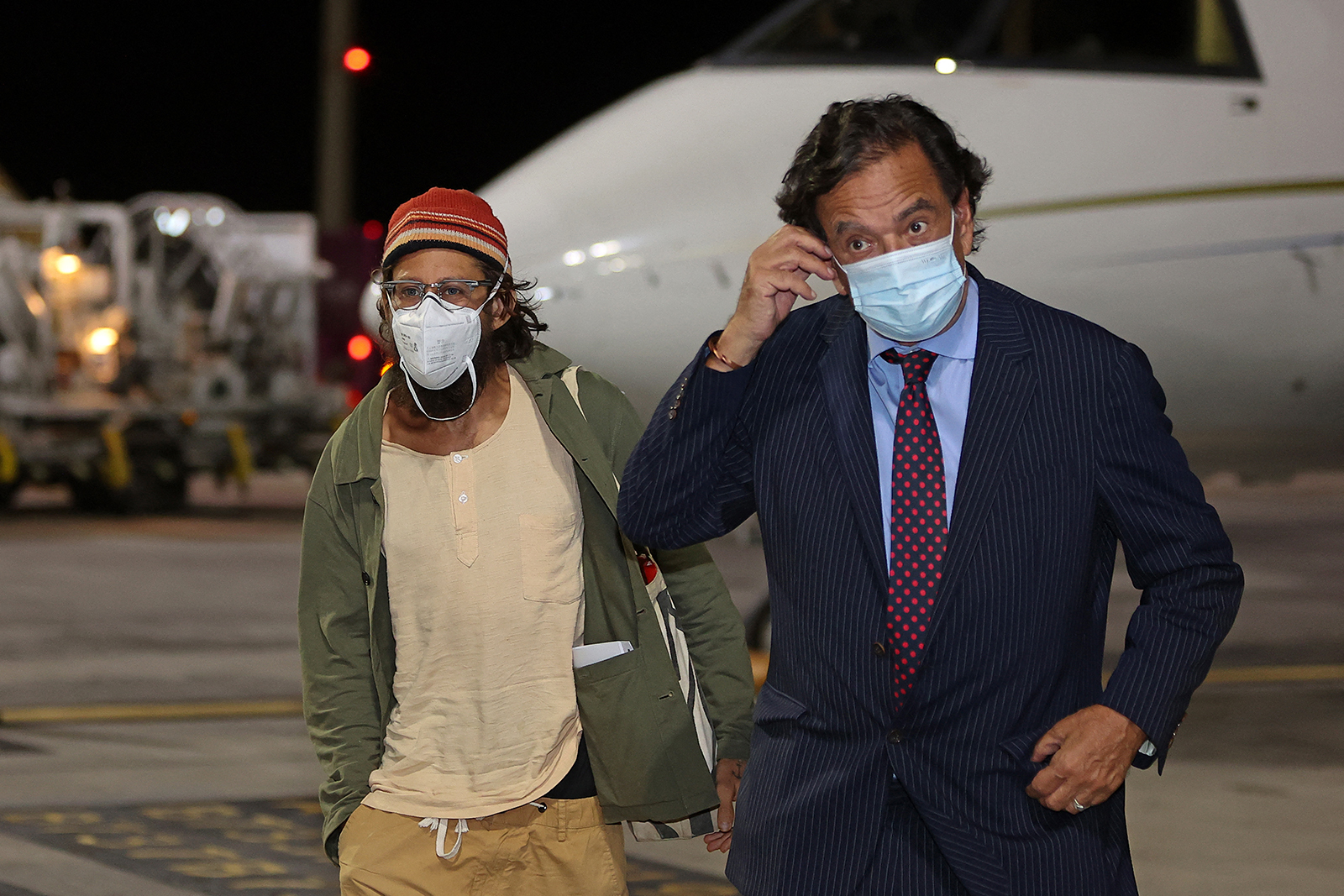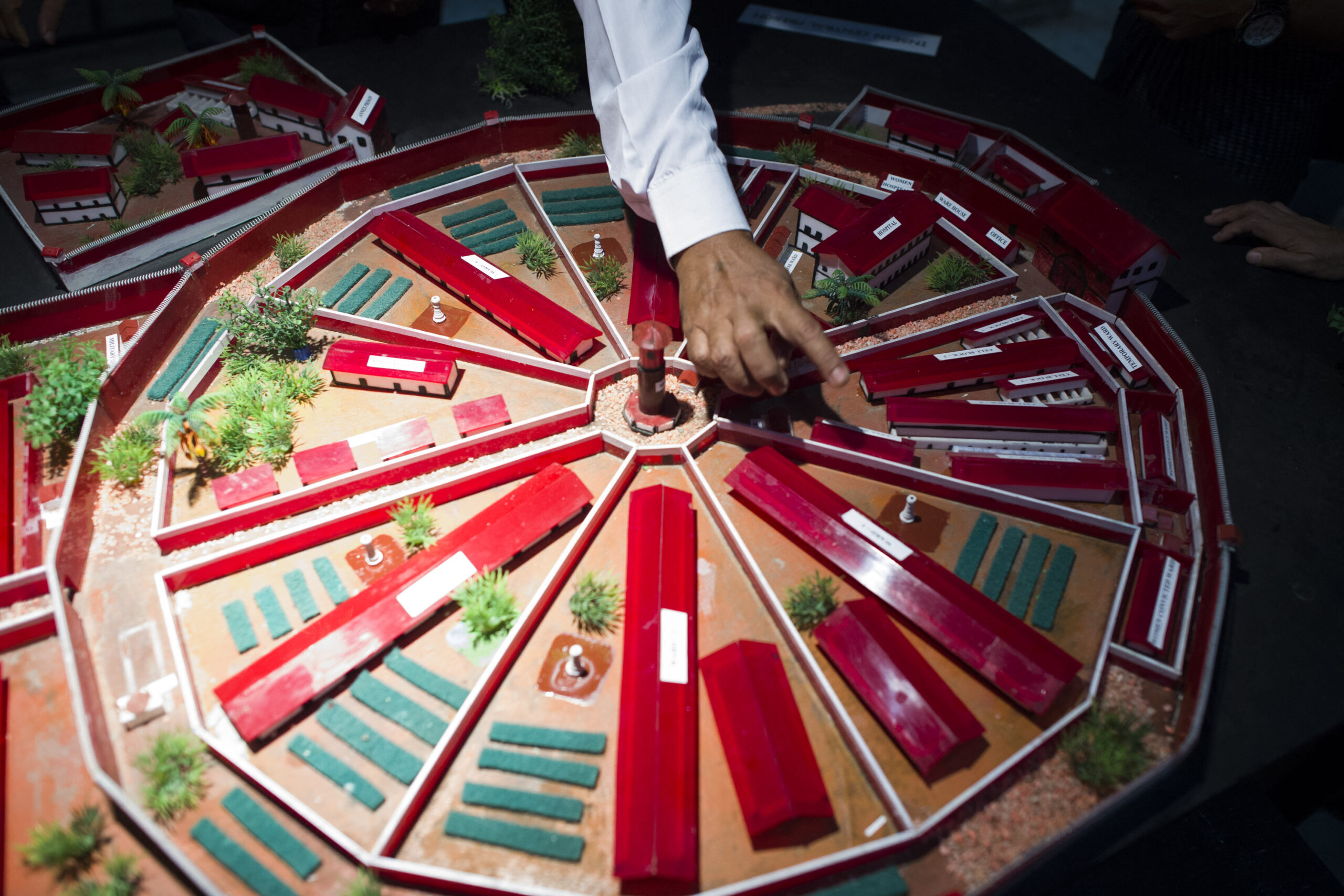Since 1999, the ICRC has been involved in visiting detainees in Myanmar’s prisons, where it provides recommendations on prison conditions through confidential reports with authorities.
It also organises family visits and helps detainess stay in touch with their families. Frontier spoke with two ICRC officials about the organisation’s work regarding detainees in Myanmar.
Could you talk a little about the work ICRC is doing with regards to detention in Myanmar?
Olivier: ICRC’s work in detention is basically to monitor the condition of detention, and to ensure that detainees are humanely treated throughout their detention time, whatever crime or offence they may have committed before.
Our team discusses with the prison authorities at the start, then makes a tour of the prison; they can access the whole place. They then conduct some private interviews with detainees who tell us about their life in prison.
Based on what we heard from prison authorities, what we saw, and what we heard from the detainees, we compile that and provide a confidential, bilateral [report] about our findings to the prison authorities. We try to have a solution-oriented approach, so we try to see what is the root cause of the problem that we have identified, and work together with the authorities on it.
If necessary, we will also provide some support to the prison. That could be in terms of sanitation, or maybe in terms of assistance items to some detainees.
Support more independent journalism like this. Sign up to be a Frontier member.
We also ensure that all detainees are in touch with their families. If we find during the arrest or detention process that family links have been broken, the detainee will approach us and fill out what we call a Red Cross Message. This is basically an open letter, it is then cross checked by the authorities, and given to the Myanmar Red Cross society, who will find the family either in the country or abroad. The idea is to make sure that the detainee is in touch with their family, so they can receive the necessary support and family visits.
What are some of the projects you have been working on?
Aleena: Based on our discussions with authorities, we also do certain projects depending on the situation.
Recently we helped authorities to build a school in Mandalay Central Prison, and a multi-purpose room at Lashio Prison [in Shan State]. We recently supported authorities in building a tuberculosis ward in Nyaung Shwe Prison [in Shan State], and we are currently working on a large project at Insein Prison
We work a lot on family visits, which helps families who live far away to come to the ICRC office, and obtain a per diem that helps them with travel expenses, because a lot of them come from poor backgrounds.
We also have a safe return home programme. A lot of detainees, when they leave prison, don’t have anything. So, if a detainee comes to us and says they need money, we can find the money for them to return home safely.
A lot of studies have proven that if detainees can maintain good family ties, this creates a better psychological environment. It helps lessen the chances of them reoffending and going back to prison.
Insein Prison is very large, and the number of beneficiaries we are targeting is 2,000 a day. This includes families and detainees.
We also look how we can create a good environment for the families waiting for the detainee. If the wait is stressful, the quality of the visit is affected by that. So the idea is to build a playground for the children, a coffee shop in the waiting area, and toilets to improve the waiting experience of the families.
The experience will also improve in the visiting room, due to better acoustics, better sound systems, and [the detainee and their family] will be able to see each other better.
Inauguration is anticipated in 2019.
ICRC has been working in Myanmar since 1999. How has your role changed since then?
Olivier: In 1999, we were focusing most of our work on political detainees to ensure that their treatment was humane, and that they were well kept. Following the release of political detainees, there have been some changes.
We have switched to what we call an all detainee approach. This means that a problem facing one individual is faced by all of the prison population. So instead of supporting one individual, now we monitor the whole prison population.
We also changed our work with the authorities. Now we are really trying to have a systematic impact, in Nay Pyi Taw, where the decisions are made. We believe that a decision taken from the top will impact positively on all the prison population.
We are engaging more and more in partnership with the prison authorities, meaning projects that we undertake are being discussed and designed together with them.
What are some of the reforms you would like to see looking ahead?
Olivier: We believe the prison law that is in place at the moment, from 1894, is completely outdated and not adapted to the 21st century. So of course we very much welcome the will of the authorities to change the prison law.
However, we think this has to remain a purely Myanmar process. Because it is their country, they have to define themselves what they want to evolve. On our side, we are very happy to support if we are requested to. We already provided some input for the draft prison law, and whenever we are requested to provide lectures, or workshops, we do it with a lot of pleasure.
Why is the work you do so important?
Olivier: It is important because [detainees] are 100 percent dependent on the goodwill of prison authorities. So it’s important that someone keeps an eye on them, so they are treated according to human rights standards. Apart from being in prison, they should benefit from the same rights as other people.
This includes the right to education, so hopefully people can be released, they can work, they can provide for their family, and not go back to prison.


